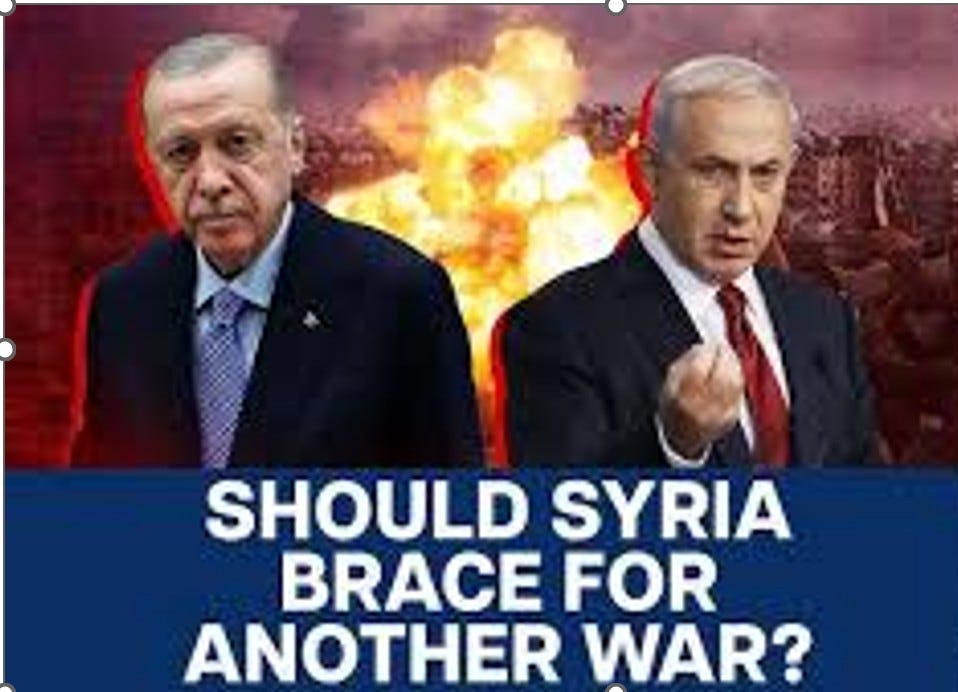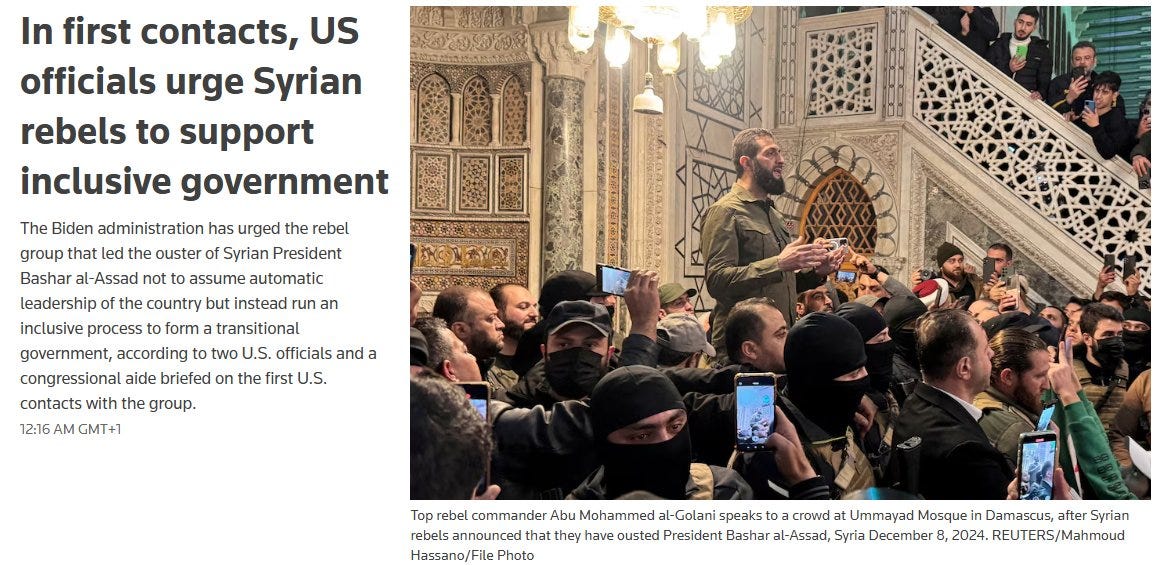Credit: Firstpost
Hi and welcome. if you appreciate this type of content, consider upgrading to a paid subscription, to help ensure that independent journalism and analysis survive. Without your support this kind of hard-hitting, fact-based analysis would not be possible.
Subscribing gives you access to the full text of this article, allows you to listen to the podcast, and/ or watch the video. To subscribe, please choose one of the subscription options.
Thank you for your support and loyalty.
Syrian rebel leader Ahmed al-Sharaa, aka Abu Mohammed al-Jolani, appears to be a man who picks his battles.
Speaking at a Damascus mosque, Mr. Al-Jolani, a one-time jihadist with a history as an Al Qaeda and the Islamic State operative and a $10 million US bounty on his head, suggested Syrians were exhausted, focused on reconstructing their war-ravaged country, and unprepared for another war.
“The country is moving towards development and reconstruction. It’s going towards stability. People are exhausted from war. So, the country isn’t ready for another one, and it’s not going to get into another one,” Mr. Al-Jolani said.
Days later, Syrian state media quoted Mr. Al-Jolani as saying, "We are not in the process of engaging in a conflict with Israel,” adding that “There are no excuses for any foreign intervention in Syria now that the Iranians have left."
Mr. Al-Jolani’s problem is that Syria may be tired of war after 14 years of fighting, but war may not be tired of Syria.
The stakes are high for Mr. Al-Jolani, his rebel group, Hayat Tahrir al-Sham, and Syria.
Mr. Al-Jolani needs to be seen as building an inclusive Syria that has ruptured the country’s ties to militancy, whether it’s Mr. Al-Assad’s alliance with Iran and the Islamic Republic’s non-state partners, Sunni Muslim radicalism, or Hayat Tahrir’s jihadist past.
The pitfalls are multiple.
Keep reading with a 7-day free trial
Subscribe to The Turbulent World with James M. Dorsey to keep reading this post and get 7 days of free access to the full post archives.




